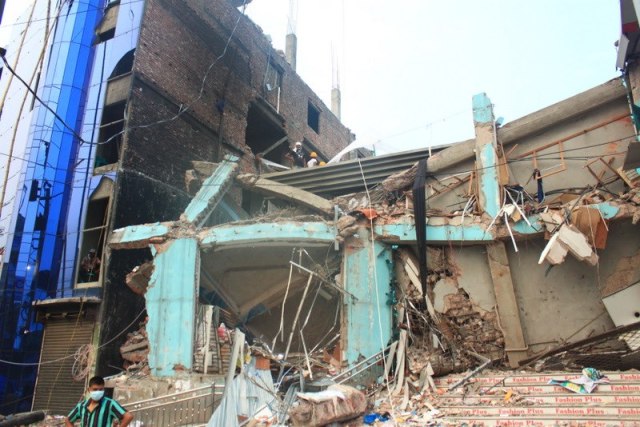Move them to the first world. There’s your one sentence answer, but if brevity’s not your thing stick with me.
Obviously, calling for workers globally to have the same safety standards, and yesterday, isn’t a serious proposal. I’d put the “globally unified workplace health and safety” in the same category as “open borders” something that isn’t going to happen, but something useful to endorse and promote because it moves the overton window.
But you rarely find people advocating open borders as a solution to the world’s problems. You even get general good eggs like Martin Wolf arguing the concerns of foreigners should be afforded zero weight when deciding policy at the national level. This is despite the fact that open borders solves most of the world’s problems.
First of all, Bangladesh. Last month’s factory collapse is a tragedy, an ongoing tragedy. While you’ve forgotten about it and moved on with ECB rate cuts or whatever families are still seeing their relatives’ bodies being pulled from the wreckage, last hopes of survivors being rescued evaporating.
Why would workers put up with such awful conditions? This isn’t, as Matt and Tim argue, that this is their choice and a rational decision, that a life is worth less here than there. The reasons workers suffer under such conditions is because they don’t have another choice. But a set of choices isn’t neutral or natural, it is created.
What creates those conditions? Well at one level grinding rural poverty creates those conditions. As Matt Yglesias points out in a better post, Bangladesh now is poorer than the US was at a comparative level of development. In the US American workers could escape to the (stolen) countryside and set up their own homestead. This practice and the threat of leaving has meant that the US has pretty much always been a high wage country.
This “exit” option is denied to Bangladeshis now. Not because their rural population is high and productivity is poor, as Yglesias implies. Who wants to move to the Bangladeshi countryside other than douchebags on their gap yah? Bangladeshi wages, living conditions, safety standards are held down by immigration controls.
In the 18th and 19th century the threat of exit boosted American workers’ wages whether they left or not. The same is true today. In Lithuania the wages of those left behind by emigrants rose in response as (specifically single male) workers became more likely to leave. Contrary to popular opinion, a world of open borders gives the workers bargaining power. The threat of exit is important and works. Hundreds of years of history proves it.
I said earlier “move them to the first world”, but that’s too simple. I meant “let some of them move to the first world and they’ll do fine, but the conditions of those left behind will also improve because their threats finally become credible.” Those textiles workers weren’t slaves, but they weren’t free either. Free people don’t make the choice they had to, to go to work that day.
___
Photo by Photo taken by Sharat Chowdhury. Used under terms and conditions of creative commons license.

You must be logged in to post a comment.